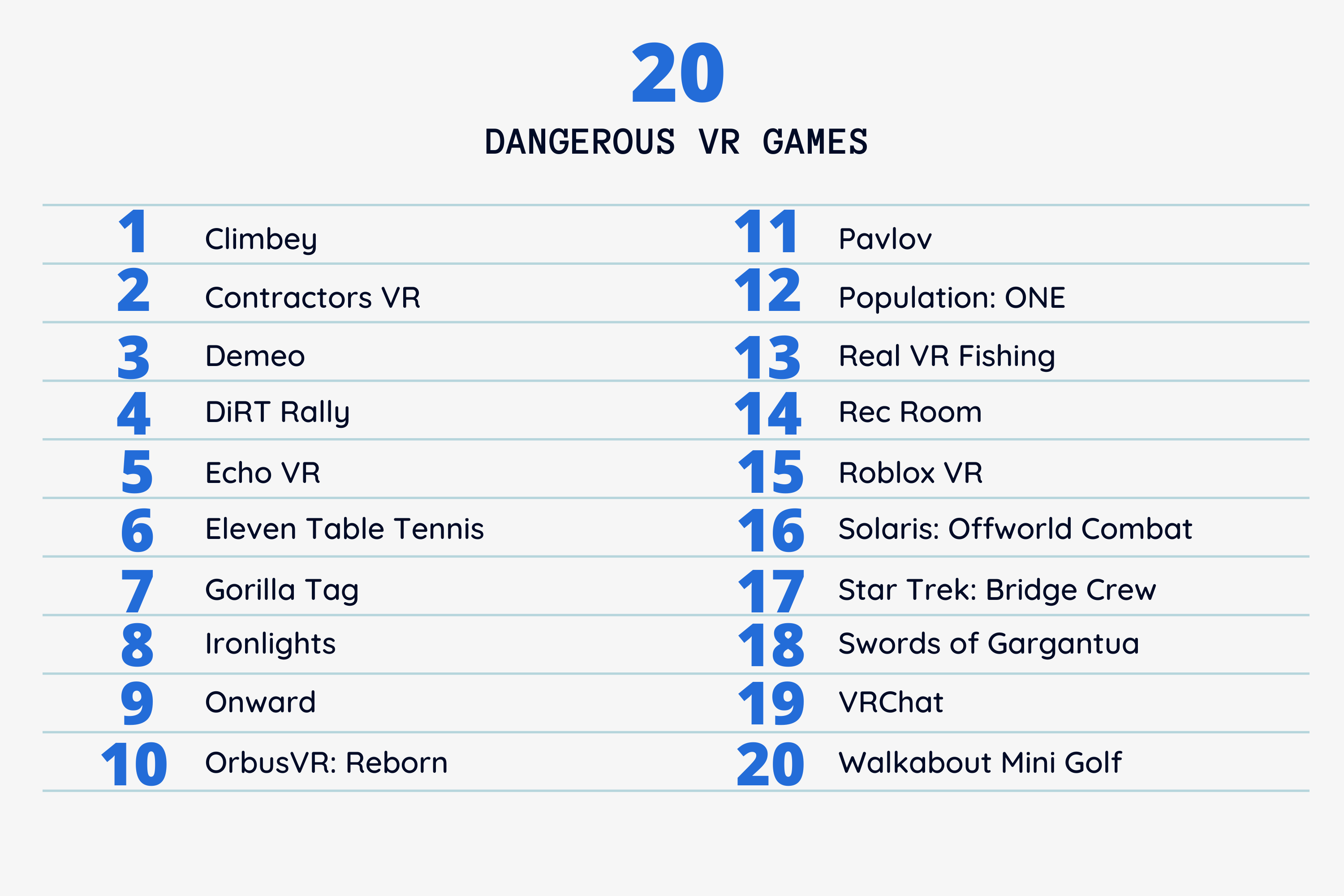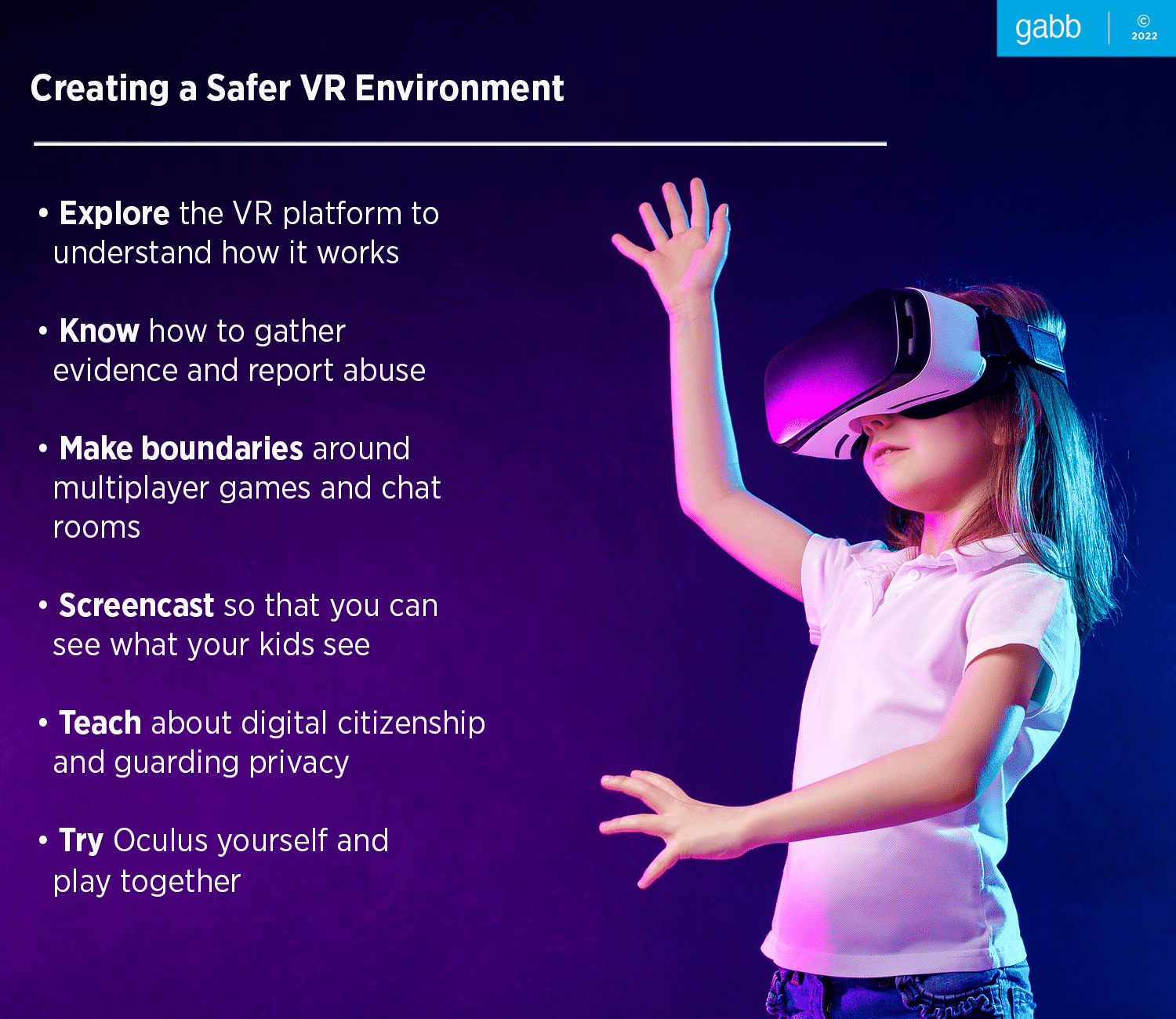Owned by Meta Platforms (Facebook), Oculus gaming headsets are stand-alone, wireless devices that run virtual reality (VR) games and software on Android.
Your kids will enter another world once they pop on the VR goggles.
“Do Just About Anything With Anyone—From Anywhere”
—Oculus tagline
Players can watch videos and movies, play games, and browse the web. The system’s biggest draw is the ability to meet and interact with strangers from all around the world, which makes the Oculus inherently dangerous for kids.
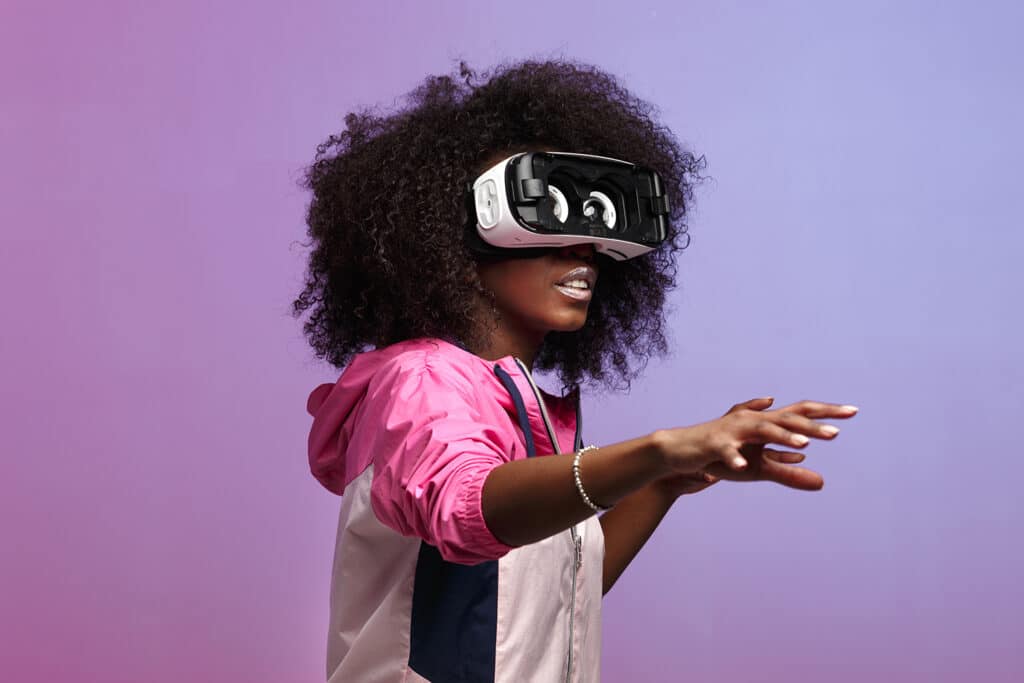
Oculus Dangers
VR may seem exciting and innovative, but it presents serious threats to children.
Specifically, there are few controls, limited child protections, and weak age restrictions.
The Oculus tagline claims, “Do Just About Anything With Anyone—From Anywhere”.[a] While this describes the online community-building capabilities of the devices, it shows that the company does not prioritize child safety, but rather profit.
Because of this, we need to be extra vigilant in understanding these concerns.
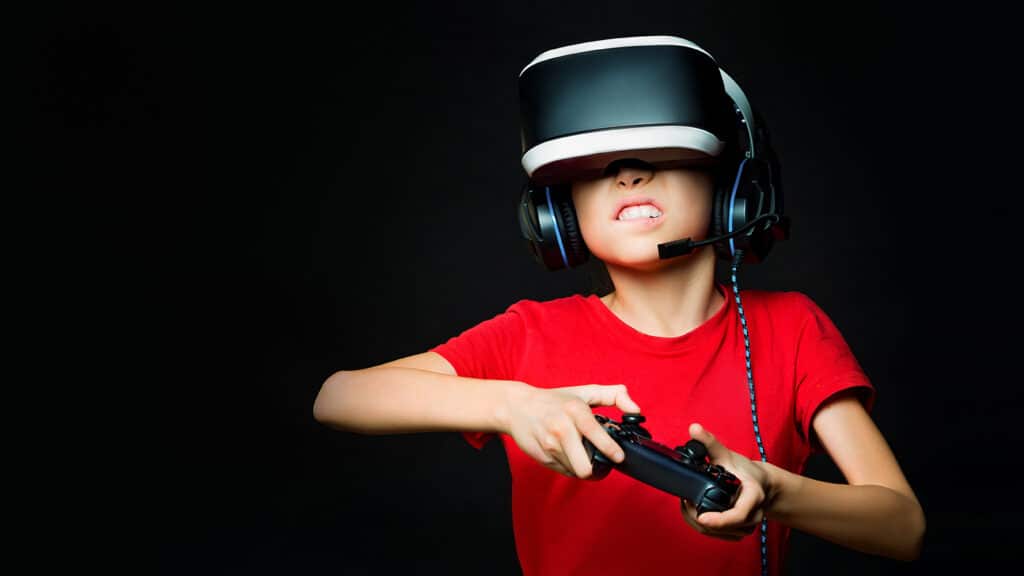
Limited controls
Despite requiring a Facebook account for access and offering some limited security features, there are no actual parental controls found within Oculus. [b]
Simply put, the device doesn’t include native content filters, built-in restrictions, or easily accessible game ratings—leaving parents unsupported and kids unprotected. [c] Being proactive is much harder for parents as a result.
Exposed kids
What Oculus does provide are after-the-fact notifications, limited tech features like screencasting [d], and minimal access restrictions that all require the use of a separate mobile app and constant parental involvement. [e]
With most families getting just 37 minutes of quality time together each day, constantly monitoring VR usage seems like an unrealistic expectation for parents. [f]
Thus, kids are left to rely on minimal safety protections included with the device.
6 in 10 children
aged 3-17 played
games online in 2021, increasing to
three-quarters of
12-17s.
—(Ofcom, 2022)
Weak age restrictions
VR headsets vary in age requirements, but Oculus recommends theirs for kids 13 and up. However, this is precisely the age range that predators target for grooming.
Studies show that children ages 12-15 are particularly vulnerable to predatory manipulation. [g]
Furthermore, children may lie about their age, and we know that predators frequently assume younger identities to target their victims.
Dangerous Game Features
Many VR games include built-in features that put our kids at risk, namely multiplayer and in-game chatting.
Multiplayer options
The most common types of MP games are:
- Player vs. Player: Games focused on 1:1 competition
- Co-op: Player and 1-3 teammates work together toward the same objective
- Team MP: Games focused on team vs. team competition
- Massive MP: Players compete individually or on a team in online servers
- Asymmetrical MP: Local players can join a unified game across various types of devices
(Piorante, 2022)
Simply put, the MP option can be dangerous for children.
While entertaining, challenging, and fast-paced, gaming with others can allow kids to meet dozens of strangers online—which can lead to school struggles, violent behavior, or more serious mental health concerns.
In-game chats
Digital anonymity can encourage people to behave more aggressively than they would in person. [h]
As MP games are collaborative and competitive, they often come with chat features that might expose children to inappropriate language, toxic behaviors, bullying, and grooming.
Some game chat systems keep it family-friendly by censoring and moderating users, but this is not always the case.
More than a third of children 8-17 played with people they didn’t know (36%); overall, 16% of 8-17s chatted to people they didn’t know via the messaging/chat functions in games.
—(Ofcom, 2022)
Hazardous Platform Features
Oculus also has inherent features that increase the risk for kids.
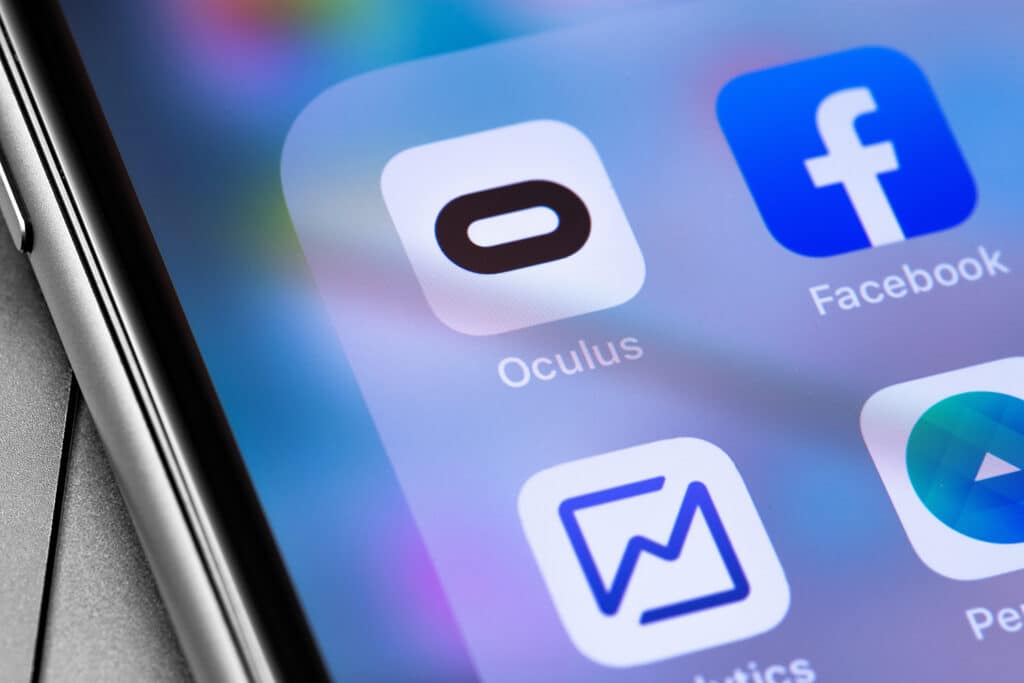
Messenger
Because Oculus players can access Messenger with a Facebook login [i], kids can chat with those they have friended using text messages, voice calls, or video calls.
This could be dangerous if a child accepts Facebook friend requests from strangers—especially people they meet through VR.
They can chat while using the Oculus headset and then continue conversations on their phone through the Messenger app. To reduce risk, this option can be disabled.
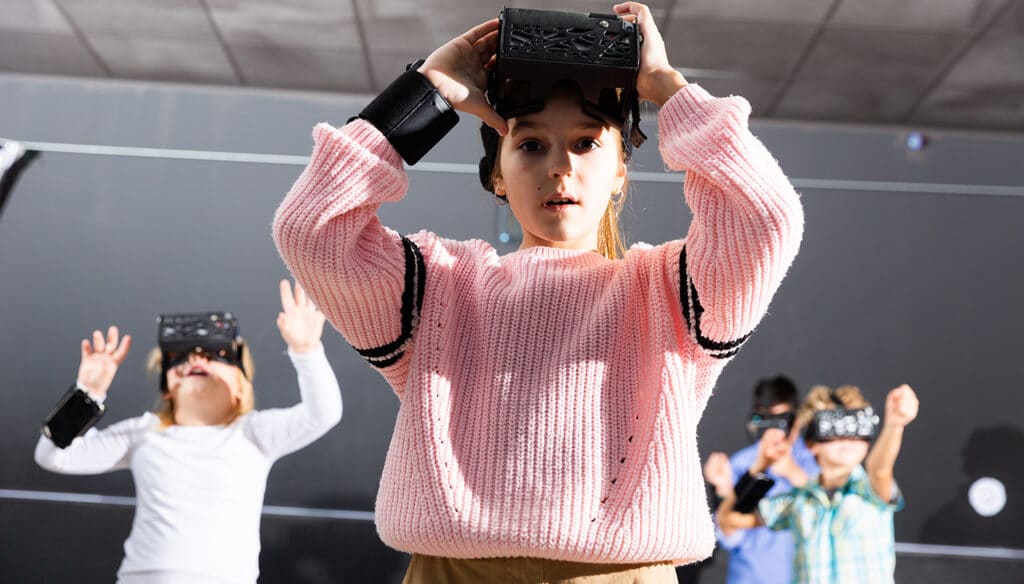
Parties
Using this feature, adolescents can create virtual “parties” with fellow VR Facebook friends.
A party is basically a group voice call that allows anyone to create or continue a conversation while playing a game together.
Parties can be private—with contacts you’re already friends with or public—open to anyone in VR.
The potential danger lies in private friends inviting other party guests your child doesn’t know or strangers joining a child’s party without an invitation. User settings determine how parties can be joined.[j]
20 Unsafe Games on Oculus
As discussed, three elements make certain VR games more dangerous than others—an online format, multiplayer capabilities, and chat options.
The following list highlights available Oculus Quest 2 game titles that match this profile.
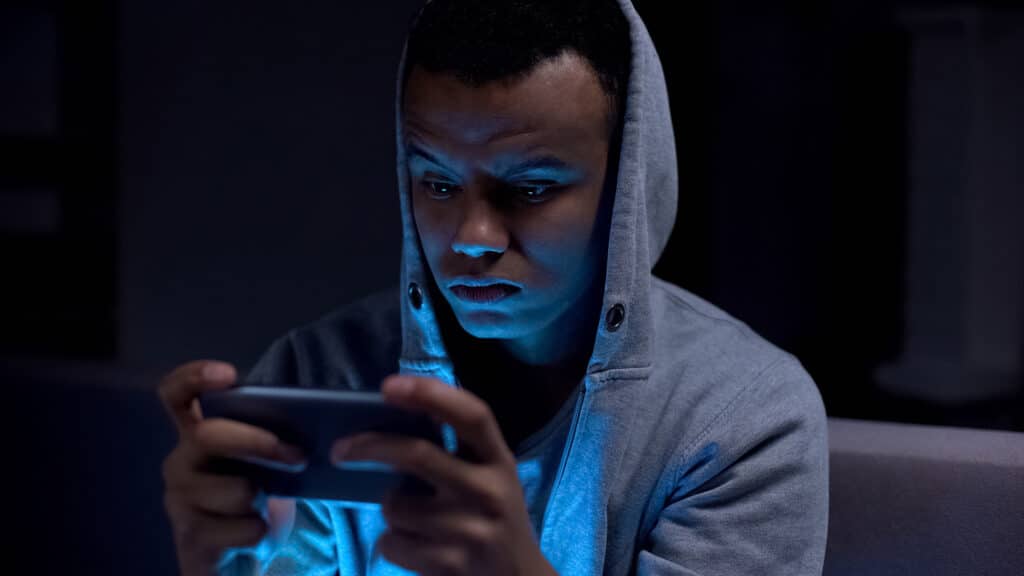
Can You Chat with Strangers on Oculus?
Despite being designed to elevate the player experience through strategizing with teammates, gaming chat systems have normalized talking to strangers online. [l]
This often occurs through direct messaging, phone conversations, digital party interactions, and speaking to strangers in real-time.
Simply put, these features make it easier for predators to groom children by using abusive methods like establishing emotional connections or moving in-game chats to outside platforms.
Children between the ages of 12 and 15 are especially susceptible to being groomed or manipulated by adults they meet online.
—Child Crime Prevention & Safety Center

Solutions to Protect Kids: Safety Measures
Moving Safely Forward
Despite existing limitations, there are some things you can do right now to take care of your family while still enjoying the VR experience.
VR risks are abundant, but take heart! By understanding the platform, staying aware, and talking with our kids, parents can ensure a safer, more rewarding VR experience for everyone.


